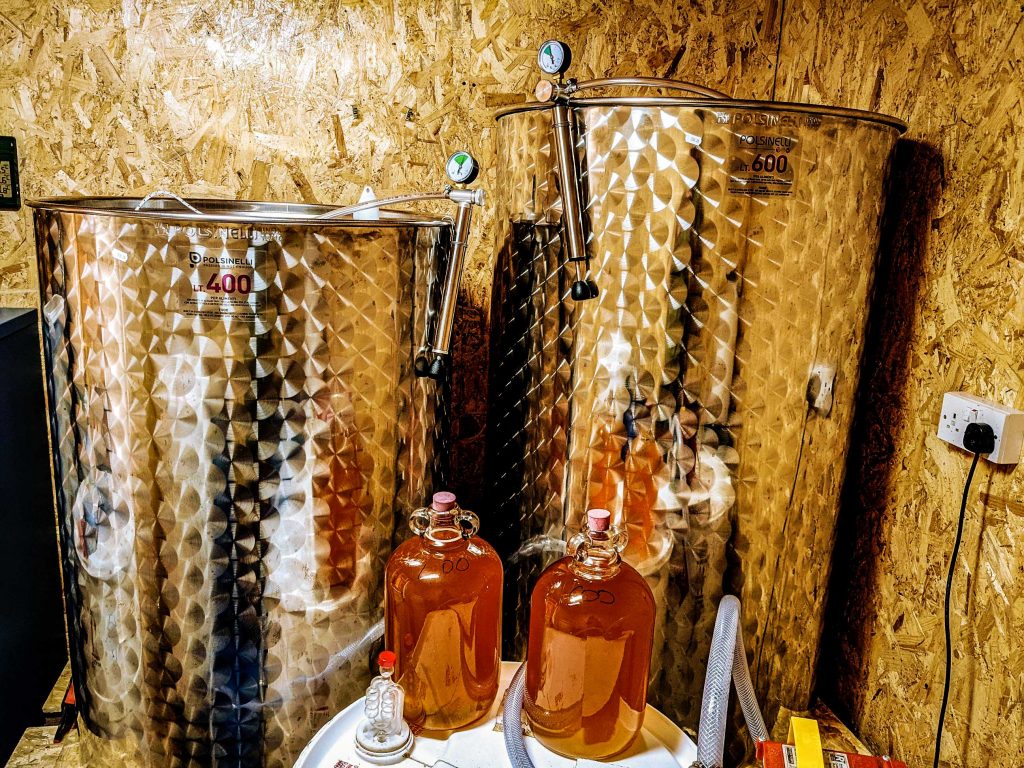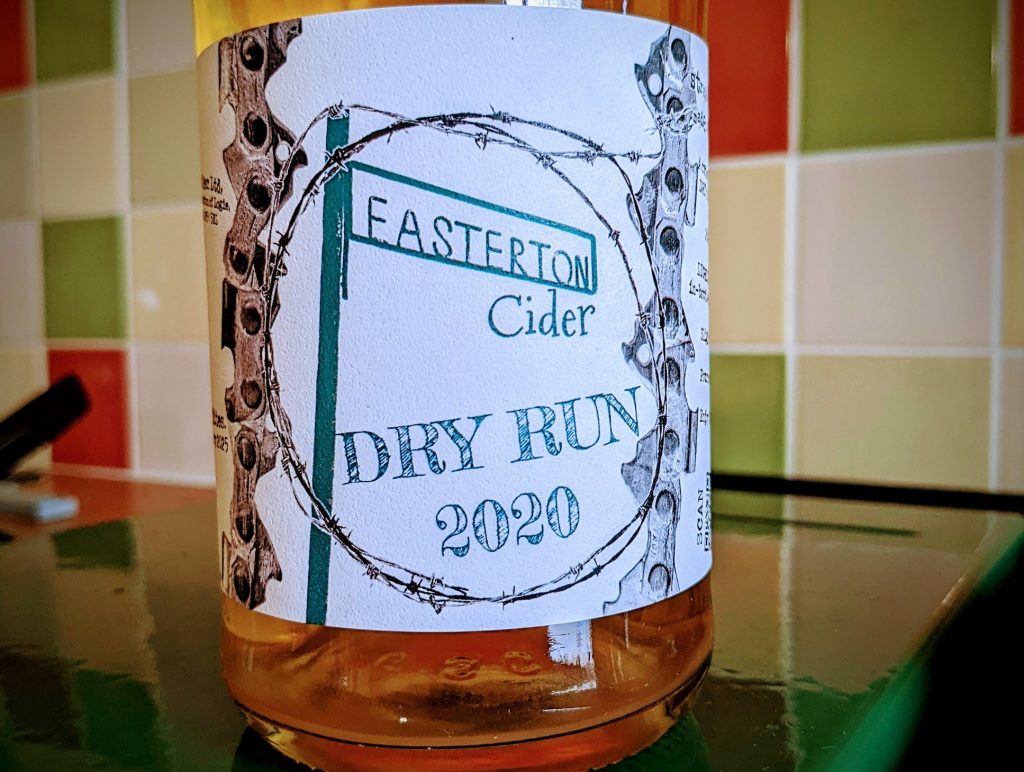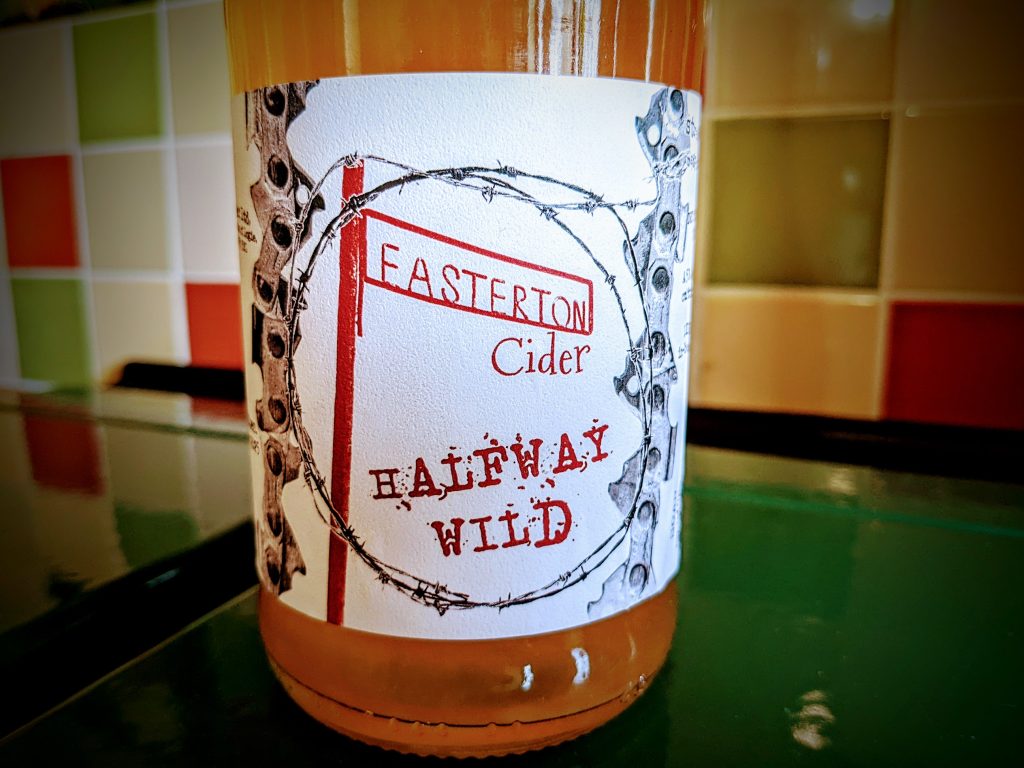The Ciders
The ciders from the 2020 harvest are now good to go!
How we make them...
At Easterton, whilst not subscribing exclusively to a particular production methodology, ideology, technique or other USP, we are firm believers in high-quality, honest, consensual cider, made from apples. We’re open about how and from where we source our fruit and how we make our ciders. Currently all ciders are full-juice, and we’ll let you know should this ever change. This means that 99% of what’s in your glass is fermented apple juice (we can’t claim 100% as we do wash the fruit and barrels beforehand, so some slight H2O contamination is inevitable) – you may not be aware, but the current UK minimum legal juice requirement in cider is only 35%!

To date, the majority of our fermentations use cultured yeasts developed for the production of wine. We use a handful of yeast strains which we know will give consistent results in terms of mouthfeel, body, control of acidity and production of aromas. Some of these yeasts benefit from a little organic yeast nutrient to keep them behaving, which is basically a fraction of dead yeast cells, produced in a lab. Some of our fermentations use wild yeasts, although we do use some sulphite to provide a degree of microbiological control at juice stage. Wherever sulphites are used, they are used in the minimum possible quantity.
When we blend the final ciders for release, taste is our only criteria. After extensive test-blending, the component fermentations are brought together in measured proportions to ensure blends which are fulsome and balanced. Some single varietal ciders are planned for the future, but should these fail to stand up on their own two feet, they’ll find their place in a blend. The final taste in the glass is all that matters, the narrative is secondary.
When the ciders are bottled, a small quantity of priming sugar is added to provide a touch of carbonation to the end product. This doesn’t impact the taste at all, and help keep the sediment from the secondary in-bottle fermentation to a minimum.
The ciders are not filtered, pasteurized or similarly messed with, leaving the real tastes and textures to shine through.



